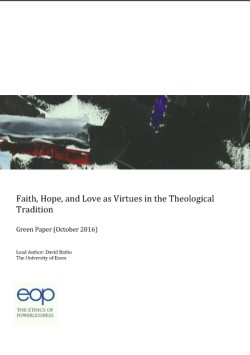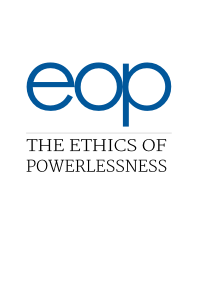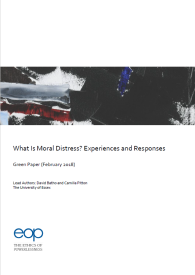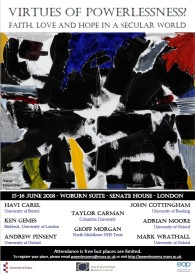About
The Ethics of Powerlessness is a research project based in the School of Philosophy and Art History at the University of Essex. The project started in July 2015 and will run for three years. Our aim is to clarify the ethical challenges that arise from human experiences of powerlessness, especially in contexts of palliative and end-of-life care.
Contact
Queries about the work of the EoP should be directed to Prof. Béatrice Han-Pile, Dr. Daniel Watts or Dr. David Batho.
Messages concerning administrative and logistic matters should be emailed to: powerlessness[at]essex.ac.uk




